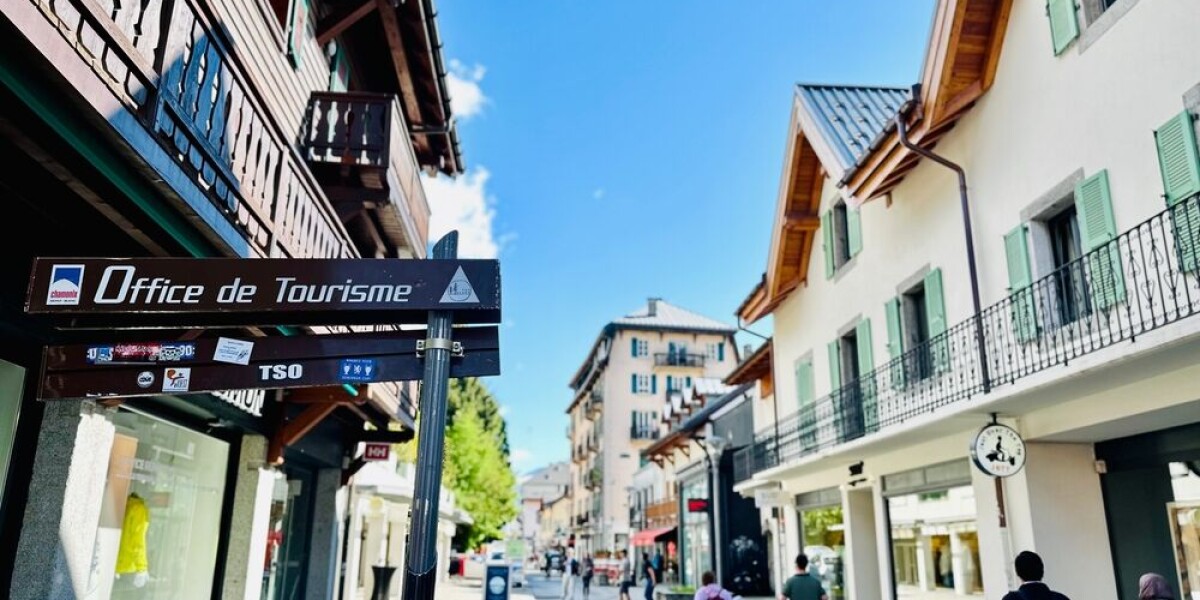
Big limitations on number of new second homes in chamonix
- Select a language for the TTS:
- UK English Female
- UK English Male
- US English Female
- US English Male
- Australian Female
- Australian Male
- Language selected: (auto detect) - EN
Play all audios:
SOME 70% OF THE HOUSING STOCK IN THE POPULAR MOUNTAIN RESORT TOWN ARE CURRENTLY SECOND HOMES Mountain resort Chamonix-Mont-Blanc, in the French Alps, has introduced major limits on new
hotels and second homes, in a bid to give priority to “permanent housing”, authorities have said. Mayor of the Haute-Savoie (Auvergne-Rhône-Alpes) hotspot, Éric Fournier, unveiled the
changes in a press release this week (March 11), as part of its new plan local d’urbanisme (PLU, urban plan). As much as 70% of the town’s housing stock are currently second homes and the
resort is especially popular with tourists. This has caused local people and vital seasonal workers to struggle to find affordable housing - or any - locally, said Mr Fournier. The town has
a permanent population of almost 9,000. The town said it would work to “meet the target of creating and converting 1,000 homes over the next ten years” and confirmed that “the municipality
will no longer authorise any new construction of second homes, by introducing permanent housing easements”. This move is permitted by the Le Meur law of November 19, 2024, which introduced
tax changes for short-term rental hosts and landlords. Read also: New tough tax rules apply on French holiday rentals from 2025 “This local urban plan also allows the municipality to
reaffirm its desire to protect natural areas and preserve agricultural areas, to support economic and tourism diversification, and to invest in the quality of life in the valley through an
ambitious policy of ecological transition,” the press release stated. Mr Fournier added: “The local urban development plan presented today is a concrete illustration of our steps in favour
of permanent housing…[it] is also an opportunity to recall the importance of preserving the commune's exceptional natural resources, which make it attractive and deserve our full
attention and commitment in a context of global warming.” Read also: Comment: The decline of French winter ski resorts is no bad thing The mayor also announced that of the 12 hectares that
are still available for development by 2035, 87.5% will be reserved for permanent housing. A mandatory share of 50% for affordable housing and 25% affordable housing for any construction
over 200m² will also be set. The authority has additionally banned the construction of any new large-scale projects, including hotels. Only establishments with around 40 rooms or fewer will
be permitted to carry out modernisation work which will be limited to 30% expansion. Hotels larger than this will only be allowed to expand by a maximum of 20%, and only for the purpose of
providing accommodation for workers and/or seasonal staff. Chamonix has already sought to discourage second home ownership, having increased its second home taxes from 5% to 60% in the
summer of 2023. This measure was denounced by the president of the mountain resident association la Fédération des associations de résidents des stations de montagne (of which there are
20,000 members in the French Alps), Mireille Sertout. She called the move “confiscatory”. LIMITS TO SECOND HOMES AND RENTALS The changes in Chamonix come amid many long-running moves
nationwide to limit second homes and holiday rentals in popular areas. Read more: MPs propose further crackdown on short-term rentals on France Read also: South of France tourist town to
strictly limit short-term lets In January this year, Paris senator Ian Brossat became the latest politician to propose a bill that would ban the purchase of second homes in areas considered
to be experiencing housing shortages and high property vacancy. It comes after many French towns imposed higher taxes for second-home owners in 2024, and many others are considering rules
and laws to reduce the number of short-term rentals (e.g. Airbnbs). Read more: More French towns are imposing ‘empty home tax’ in 2024 Read also: What is France’s empty homes tax and why
more people will be paying it Read more: Second homes in France: locals call for quotas